8 de octubre 2024

Children of Exile: The Births “Sowing Hope” in the Camp of Nicaraguan Farmers

PUBLICIDAD 1M
PUBLICIDAD 4D
PUBLICIDAD 5D
City Hall raises quotas and forces people to seek bank credit for social housing, despite having state money and a millionaire loan from CABEI
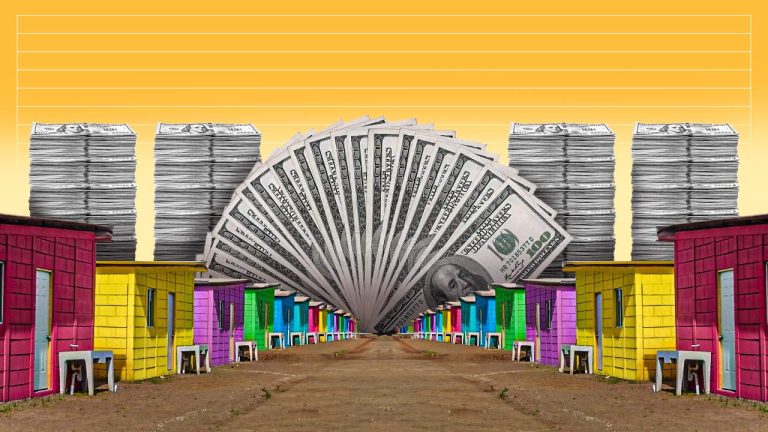
The Mayor's Office of Managua has doubled the monthly fees to access the Bismarck Martínez housing, from $40 or $50 to more than $100. // Photo credit: CONFIDENCIAL
For three years, Anielka bought various household goods and furniture for what would eventually become her home in one of the complexes of the “Bismarck Martínez” social housing program in Managua. However, since late 2023, she hasn’t bought even the smallest ornament for her future home. “I don't know if they will ever give it to me,” she laments.
The 42-year-old single mother of two girls aged eleven and fourteen, from the capital, earns her living as a merchant selling women's products. Her income barely exceeds the threshold of the average minimum wage - 8540 córdobas and 92 cents (which is about USD 233.2 at the official exchange rate). She saw the “Bismarck Martínez” housing program as an opportunity to stop staying with relatives.
On October 8, 2018, Nicaraguan Vice President Rosario Murillo announced the Bismarck Martínez housing program during the monologue she broadcasts every noon through official media.
Initially, the program aimed to distribute urbanized lots “at reasonable prices”, to build “decent and safe” housing. A month later, on November 7, the Vice President reported that they were going to “work to complement the Bismarck Martinez program with small houses which we are sure will be to the liking of the families who will be able to acquire their homes through the payment of a manageable fee according to their income”.
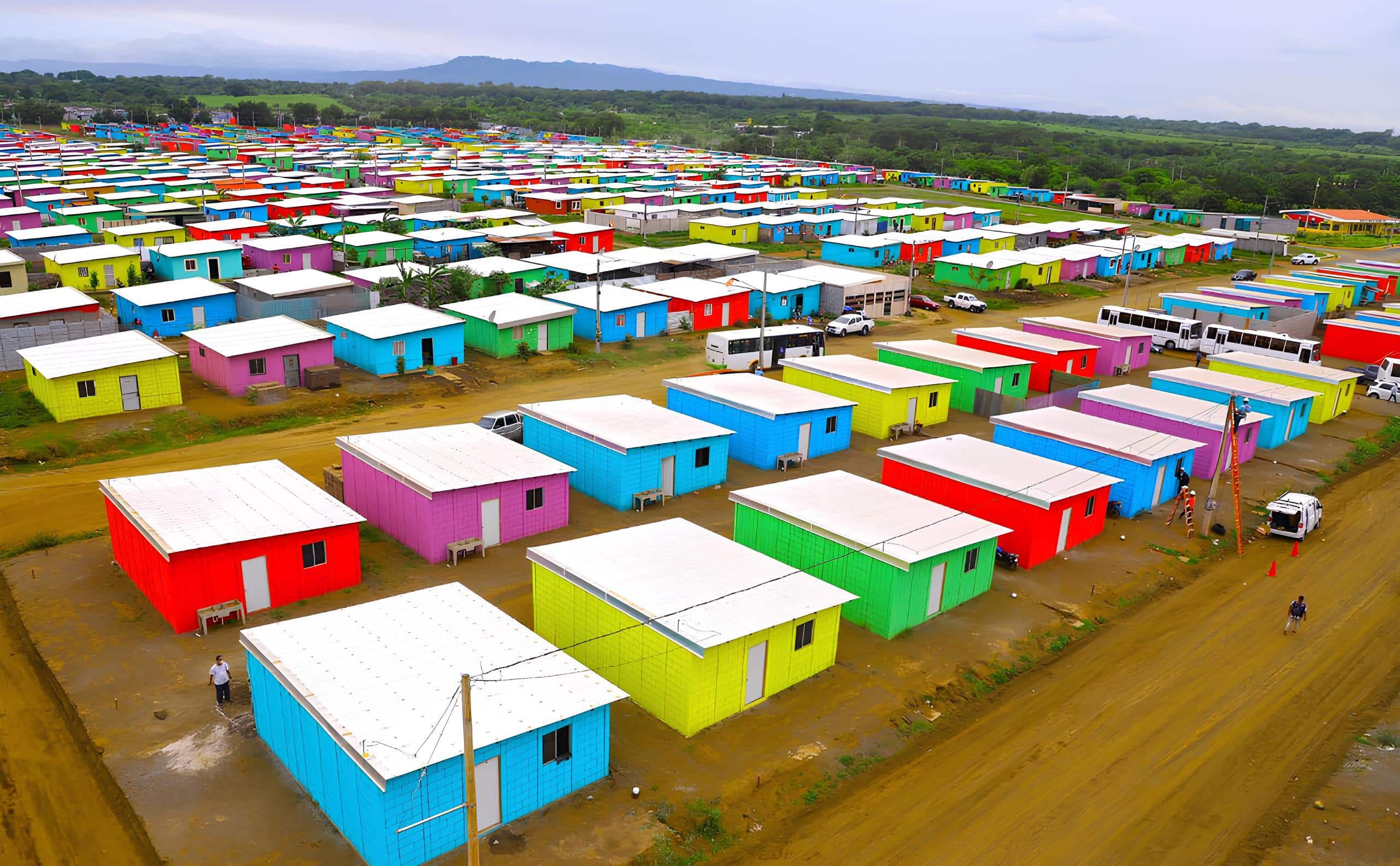
Under an opaque scheme and with little transparency, the Mayor's Office of Managua has raised the fees to access housing, despite having funds from the General Budget of the Republic (PGR) and an international loan granted by the Central American Bank for Economic Integration (CABEI), according to an investigation by CONFIDENCIAL.
For this investigation CONFIDENCIAL interviewed developers, construction entrepreneurs, real estate brokers, budget experts and personnel from four municipalities where its implementation was announced. We also spoke with residents accepted and rejected under the “Bismarck Martinez” program. All requested to omit their names to avoid reprisals from the regime of Daniel Ortega and Rosario Murillo.
On its web page, the Mayor's Office states: “If you opt for the housing program, the monthly contributions are from 40 to 50 dollars”. However, the minimum fees in the housing developments are much higher.
The requirements to qualify for housing under the “Bismarck Martínez” program include: to be of legal age, to live in Managua; to write a letter to President Daniel Ortega; to have a monthly income of 10,000 córdobas – equivalent to US$274 –, and to present an salary confirmation letter mainly.
Other requirements to access the program are copies of documents and not having been previously benefited with a subsidy, bonus from the Urban and Rural Housing Institute (Invur) or housing program of the Managua Mayor's Office or other local government.
Bismarck de Jesús Martínez Sánchez was a Sandinista Front militant who, according to the government, was tortured and murdered after being kidnapped on June 29, 2018, at a roadblock in the municipality of Jinotepe, Carazo, during the wave of anti-government protests that were repressed with bullets by police and paramilitary groups loyal to the Ortega and Murillo regime.
According to this narrative, Martínez, 55, was driving his vehicle to a house in Jinotepe, in the southeast of the country, when he was detained at a “tranque” or roadblock set up by protestors at the San José school in that municipality. Bismarck Martínez, a Sandinista sympathizer, had been working since 2002 in the Managua City Hall, where he was the head of urban aesthetics.
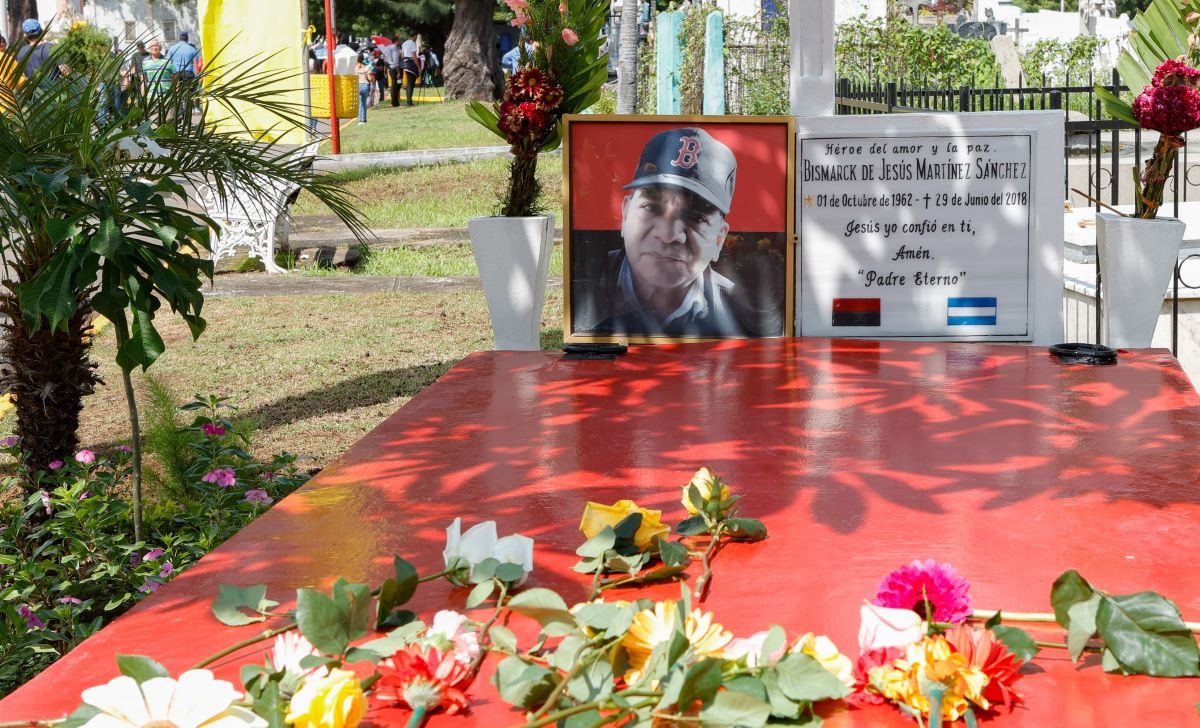
The Ortega and Murillo Administration did not allow the circumstances surrounding the death of Bismarck Martínez to be investigated by officials of the Inter-American Commission on Human Rights (IACHR) or the OAS Special Follow-up Mechanism for Nicaragua (Meseni), who visited Nicaragua in 2018 to inquire about political violence and were expelled from the country by State authorities.
The housing program was named in honor of Bismarck Martinez, who was later called a “hero of peace and love” by the government. Initially, the program benefited only the families of Sandinista militants, paramilitaries, or members of the regime's shock forces in several departments of the country.
During the launching of the program, municipal and government authorities promised that they would benefit 50,000 families with a social housing unit, and an equal number of families with an urbanized lot.
The Government and the municipalities claim to have given more than 30,000 lots and at least 8,000 houses, but these figures cannot be verified or audited because there is no official public record of these deliveries. The government and municipalities limit themselves to making announcements for promotional or partisan purposes without backing up the total deliveries.
These official figures cannot be contrasted because only five mayors' offices, out of 153 municipalities in Nicaragua, have reported on the total number of houses or lots delivered, according to a review made by CONFIDENCIAL of the social networks of the municipalities and the interviews of the pro-government media to the mayors about the “Bismarck Martinez” program.
The Mayor's Office of Masaya claimed to have delivered, until July 2024, some 259 plots of land in a lot called “Villa Blanca Stella Aráuz Pineda”; the Mayor's Office of Boaco claimed to have distributed some 500 plots in the “Jorge Gastón Palacios” lot, according to the review.
The Mayor's Office of Chinandega announced that it had delivered 200 houses in the “Héroes y Mártires del 2 y 3 de junio” housing development, the Mayor's Office of León disclosed having provided 135 houses in the “Hilton Manzanares” housing development (named after a policeman killed in the 2018 protests).
According to the Mayor's Office of Managua, as of September 2024, they had benefited 7844 families, of these 5239 with a house and 2605 with a lot.
The houses -according to the commune- were distributed as follows:
And lots have been delivered in:
The Ortega government claims to have built, as of September 2024, some 140,808 houses in its 17 consecutive years in power. Nicaragua's housing deficit was 1.3 million homes as of 2018, according to the latest housing census of the National Institute of Development Information (Inide). Studies by the Inter-American Development Bank (IDB) indicate that 80% of the Nicaraguan population does not have adequate housing or in optimal conditions.
houses are claimed to have been built by the government of Daniel Ortega during 17 consecutive years in power.
was the housing deficit in Nicaragua in 2018, according to the latest published housing census.
Anielka joined the program at the beginning of 2020, and since then, she has been making monthly payments of $41 to the Municipality of Managua, governed by the ruling Sandinista National Liberation Front (FSLN) since 2001. By September 2024, she had paid over $2,323.
The contract she signed—though they refused to give her a copy—stated that if she had not received the house within a maximum of three years, she could request a refund. Anielka chose not to ask for her money back because, in early 2023, the Municipality had “promised” her that they would deliver the house.
The promise of the Sandinista mayor's office changed one morning in early November 2023. A municipal official called Anielka to inform her that her case would be transferred to Banco de la Producción (Banpro) and that she would need to be approved for financing to receive the house.
“The woman explained that if I have debts and the bank denies my loan, I’ll automatically be excluded from the Bismarck Martínez program, and they would only refund half of the money I’ve paid,” Anielka says.
The arrangement has been a “problem” for Anielka, as she has an existing debt with a finance institution, so she fears Banpro might not approve the loan. Despite this, she decided to keep making the $41 monthly payments to the Municipality and will apply for bank financing only after she has settled her debt with the finance company.
According to the government, Bismarck Martínez homes are intended for citizens who earn less than the average minimum wage—8,540.92 córdobas (around $233.2 at the official exchange rate) —and cannot qualify for a bank loan. However, the Municipality of Managua has covertly facilitated the "sale" of homes under this social program.
"The project started as a solution to the housing problem, but as time went on and they realized they could make money from it, they began doing just that. 'Technically, the Managua City Hall has become a developer. They pick a piece of land, build the houses, and then sell them with financing. It’s turned into a business for them,' said Rigoberto, a real estate broker consulted for this investigation."
The opposition and former councilman of Managua, Luciano García Mejía, stated that the “Bismarck Martínez” went from being a “social program” to a “commercial” project of the Mayor's Office, although the municipality insists on emphasizing that “the houses are cheap”.
“From the moment these projects become a business for someone, they are no longer social, they are commercial”, he stressed.
“These projects, as I have seen in other programs, are facades that the capital's municipality uses for its business. They use all the propaganda infrastructure of the regime to lie to the population and tell them that they are doing something for the people, when it is a mere commercial intermediation,” said Garcia, who was a councilman of the Independent Liberal Party (PLI) between 2008 and 2012.
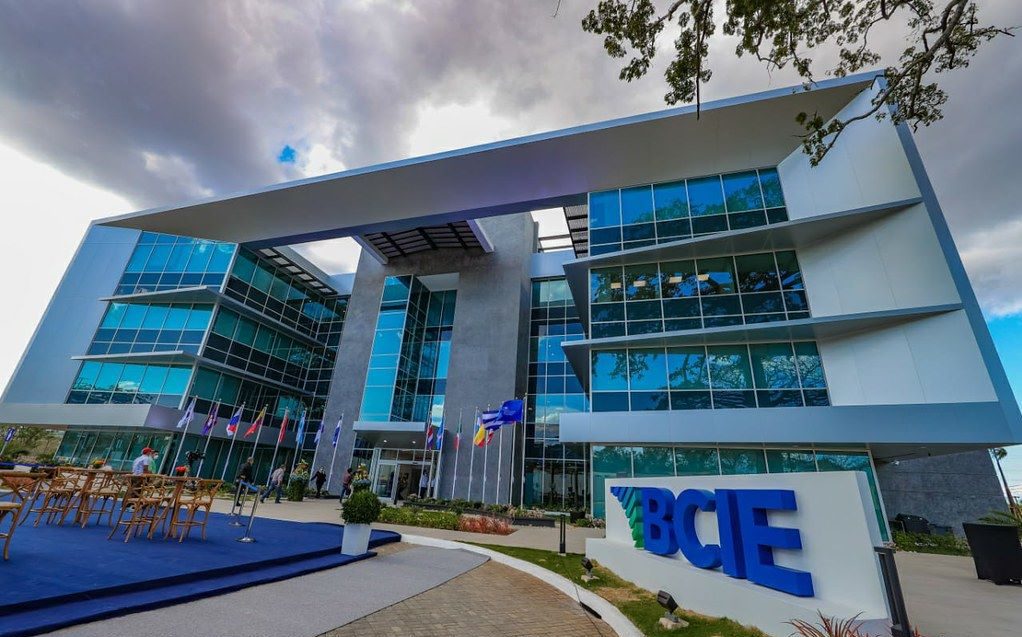
Two construction business owners and a representative from the housing development sector agreed that social housing projects aren’t usually “appealing” to private banks, but this case is an exception.
For the “Bismarck Martínez” program, Banpro manages the funds from a $171.65 million loan granted by the Central American Bank for Economic Integration (CABEI) to Nicaragua through a trust.
The loan was approved in April 2020 and by July 2024, US$85 million had already been disbursed, CABEI informed CONFIDENCIAL during this investigation.
CABEI clarified that out of the $85 million—meant to “fund the National Program for Social Housing Construction”—the money was released in two parts: “credit and subsidy” and “extreme poverty.” $40 million was allocated to the first part, and $45 million to the second.
“As of now, $29.8 million has been disbursed through the Banpro trust,” the regional bank highlighted. Funding for the “Bismarck Martínez” program falls under the “credit and subsidy” portion.
The remaining $10.2 million was used by the Urban and Rural Housing Institute (Invur) to provide “subsidies” for housing down payments. The subsidy ranges from $2,000 to $3,500 and is only available for homes valued at no more than $30,000, according to the institution.
“Through credit and subsidy, 2432 houses have been financed”, CABEI stated.
On August 12, 2021, Invur and Banpro signed a contract to create the trust. “Invur pays Banpro an annual fee for managing and collecting the loan portfolio, based on the outstanding balance of the portfolio each year,” explained CABEI.
Four municipal officials—who asked not to be named or reveal their workplaces—told CONFIDENCIAL that the Banpro trust is only used for housing projects in Managua. In other regions, Invur uses different funds.
“To qualify for a Bismarck Martínez home, the main requirements are: living in the municipality, not owning any other property, providing proof of income (either an INSS payment slip or salary certificate), and submitting a letter to Ortega or Murillo,” one source explained.
Once all the requirements are met, the approval process for a home can take months or even years. According to one of the officials, supporters of the FSLN or those with connections to mayors or political secretaries tend to get approved much “faster.”
For the Bismarck Martínez housing program in Managua, Banpro offers loans with an interest rate of 7.25% per year, according to the new requirements set by the capital’s municipality for acquiring homes under the program.
Nicaraguan commercial banks — including Banpro — typically offer mortgage loans at an average annual interest rate of 9.07% for short-term loans and 11.51% for long-term loans, according to data from the Central Bank of Nicaragua (BCN) as of June 2024.
According to Nicaraguan economist Marco Aurelio Peña, who is exiled in Costa Rica, the “trick” behind the trust lies in the terms of the CABEI loan, which is required to offer lower interest rates because “it’s a development bank, nonprofit, and funded by its member countries.”
CABEI was founded in 1960 by Nicaragua, Guatemala, Honduras, El Salvador, and Costa Rica. Today, it has 15 member countries, including South Korea, Taiwan, Mexico, and Spain. It is the only development bank in the region where its main shareholders are also its main loan recipients.
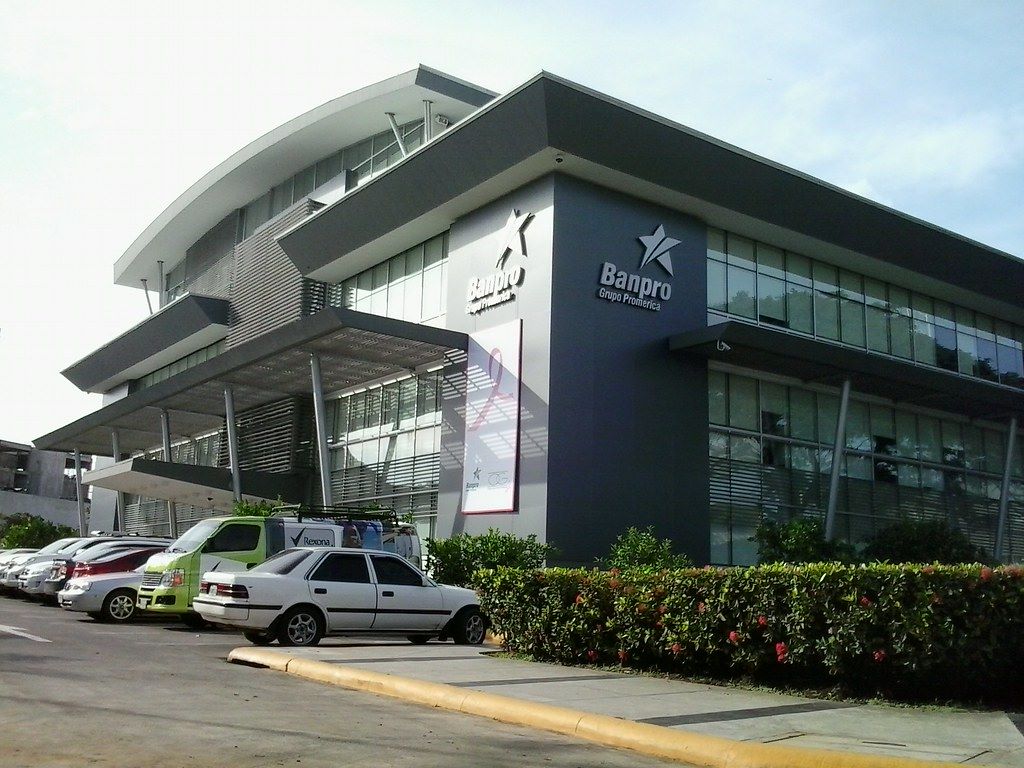
The regional bank explained that the loan for the trust fund comes with a 25-year term and a five-year grace period. It also noted that the loan is “repayable in semi-annual installments.”
“The interest rate is based on the six-month Adjusted Term SOFR plus a margin of 3.5%, which will be reviewed and adjusted quarterly over the course of the loan,” the bank clarified.
Peña pointed out that the grace period wasn’t passed on to Nicaraguans, as Banpro “starts charging” the installments the month after the loan is granted.
He explained that the SOFR interest rate, a key benchmark in financial markets, was just 0.04% in April 2020 when the loan was approved. Adding the 3.5% margin brought the initial interest rate on the CABEI loan to Nicaragua to 3.54%.
“The SOFR rate stayed at 0.04% and only rose to 0.05% by March 2022. After that, it started climbing and hasn’t stopped,” the economist said, after checking the website “global-rate,” which tracks all current and historical SOFR rates.
He emphasized that there’s a 3.71% difference between the initial loan from CABEI and the trust loan, which has generated “profits,” though how those profits are distributed is unclear.
“The profits should go only to Banpro because they can’t, or at least shouldn’t, be passed on to the Municipality and Invur, since those are public, nonprofit entities. They can’t report dividends because they’re not state-owned companies,” he explained.
The economist added that it’s impossible to estimate the financial gain because the terms of the contract between Banpro and Invur are unknown, along with “other banking elements involved” in the trust’s operation.
CONFIDENCIAL reached out, without success, to the Municipality of Managua, Invur, and Banpro to inquire about the trust contract’s terms, the agreed interest rates, and the selection process and number of citizens who benefited. Emails were sent on August 21, 2024, but as of this publication, no response has been received.
Anielka hopes to pay off her debt with the financial institution by December 2024 and apply for a Banpro loan in January 2025. If the bank rejects her, she’ll lose “hope” of owning a home. But in case she receives approval, she’s already budgeted $110 per month for the payments. “It’s like tossing a coin,” she says, trying to comfort herself. “But at least I’ll finally know if I’ll have a house or not.”
*This report is part of the series Los negocios con las viviendas “Bismarck Martínez”, an investigation by CONFIDENCIAL, carried out with the support of the Consortium to Support Independent Journalism in the Latin American Region (CAPIR), a project led by the Institute for War and Peace Reporting (IWPR).
If you are interested in republishing this investigation, please write to us at info@confidencial.com.ni
This article was published in Spanish in Confidencial and translated by our staff. To get the most relevant news from our English coverage delivered straight to your inbox, subscribe to The Dispatch.
PUBLICIDAD 3M
Confidencial es un diario digital nicaragüense, de formato multimedia, fundado por Carlos F. Chamorro en junio de 1996. Inició como un semanario impreso y hoy es un medio de referencia regional con información, análisis, entrevistas, perfiles, reportajes e investigaciones sobre Nicaragua, informando desde el exilio por la persecución política de la dictadura de Daniel Ortega y Rosario Murillo.
PUBLICIDAD 3D